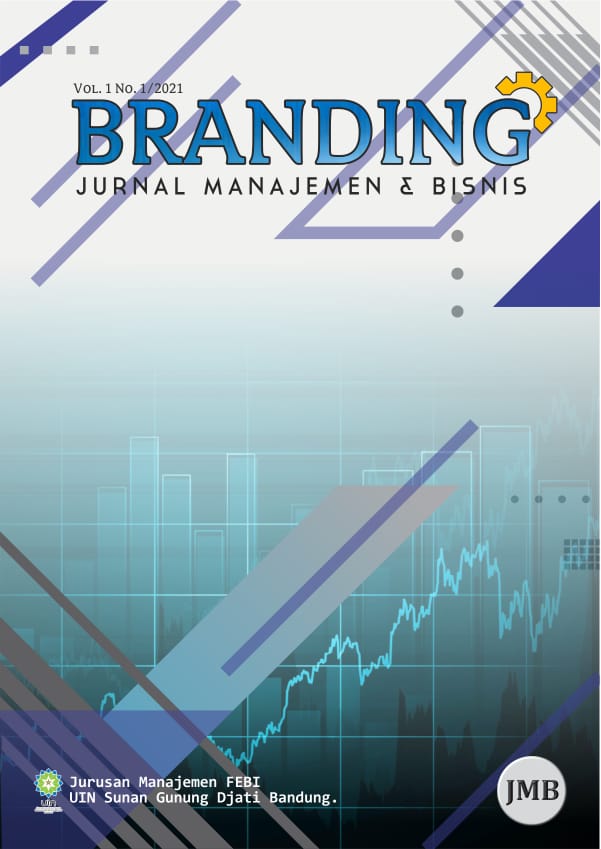THE IMPACT OF THE BOYCOTT MOVEMENT ON ISRAELI PRODUCTS ON BRAND PERCEPTION AMONG MUSLIM CONSUMERS: AN ANALYSIS OF BRAND IMAGE AND CUSTOMER LOYALTY
DOI:
https://doi.org/10.15575/jb.v2i2.31922Keywords:
Boycott Movement, Brand Perception, Muslim Consumers, Customer Loyalty, Political Consumerism.Abstract
This article examines the impact of the boycott movement against Israeli products on brand perception and customer loyalty among Muslim consumers, primarily through an extensive literature review. It investigates how the socio-political context of the boycott influences Muslim consumers' perceptions and attitudes towards these brands. The study synthesizes findings from various scholarly articles, reports, and case studies to understand the dynamics between political activism and consumer behavior. Key insights reveal a notable shift in brand image and loyalty, underscoring the critical role of political and ethical considerations in shaping consumer choices. This comprehensive analysis contributes to the broader discourse on consumer behavior in politically sensitive environments and offers strategic insights for businesses in managing brand reputation amidst socio-political challenges.
References
Al-Swidi, A., & Mohammed Rafiul Huque, S. (2019). The impact of brand image and corporate branding on consumer’s choice: The role of brand equity. Journal of Marketing Communications, 25(1), 57-71.
Aji, H. M., & Salma, S. Y. (2022). What drives Muslims to boycott French brands? The moderating role of brand judgment and counterargument. Journal of Consumer Behaviour.
Bahman, M. (2021). Impact Of Social Media Marketing Activities on Consumer Behavior with the Mediating Role of Brand Equity. Journal of Marketing Management.
Bhattacharya, C. B., & Sen, S. (2004). Doing better at doing good: When, why, and how consumers respond to corporate social initiatives. California Management Review, 47(1), 9-24.
Bizarrias, F., Casais, B., & Fortes, N. (2023). Conditional effects of consumer-brand relationships on admired and non-admired brands, and its impact on schadenfreude. Journal of Business Research.
Changqi, H. (2022). Research on the Impact of Foreign Brand Perception on Corporate Consumer Purchasing Behavior. Journal of International Consumer Marketing.
Cherrier, H., & Ponnor, T. (2010). Anti-consumption discourses and consumer-resistant identities. Journal of Business Research, 63(2), 181-190.
Etrata, A. E., et al. (2022). Does Political Ideology of Brands Impact Consumer Buying Behavior?. Journal of Consumer Marketing.
Gürhan-Canli, Z., & Batra, R. (2004). When corporate image affects product evaluations: The moderating role of perceived risk. Journal of Marketing Research, 41(2), 197-205.
Hoffmann, S. (2013). Anti-consumption as a means of saving the world: An overview of existing literature. Journal of Macromarketing, 33(3), 252-267.
John, A., & Klein, J. G. (2003). The boycott puzzle: Consumer motivations for purchase sacrifice. Management Science, 49(5), 1196-1209.
Khan, U. A., & Fatma, M. (2021). Understanding consumer boycotts: A systematic review and research agenda. Journal of Business Research, 122, 685-700.
Klein, J. G., Smith, N. C., & John, A. (2004). Why we boycott: Consumer motivations for boycott participation. Journal of Marketing, 68(3), 92-109.
Lee, J. Y., & Lee, K. H. (2020). The effect of consumer boycotts on brand image and purchasing behavior. Journal of Business Ethics, 162(2), 291-310.
Öberseder, M., Schlegelmilch, B. B., & Murphy, P. E. (2013). CSR practices and consumer perceptions. Journal of Business Ethics, 118(2), 287-302.
Riefler, P., & Diamantopoulos, A. (2007). Consumer animosity: A literature review and a reconsideration of its measurement. International Marketing Review, 24(1), 87-119.
Smith, N. C., & Palazzo, G. (2010). The ethical backlash of corporate branding. Journal of Business Ethics, 95(4), 701-720.
Vida, I., & Fairhurst, A. (1999). Factors influencing consumer boycotts: The impact of political consumerism. Journal of International Consumer Marketing, 11(2), 73-91.
Yusiana, R., Widodo, A., & Sumarsih, U. (2021). Integration Consumer Response during Covid-19 Pandemic on Advertising: Perception Study on Eco-Labeling and Eco-Brand Products Eco-Care. Journal of Marketing Communications.
Downloads
Published
How to Cite
Issue
Section
Citation Check
License

This work is licensed under a Creative Commons Attribution-ShareAlike 4.0 International License.
















